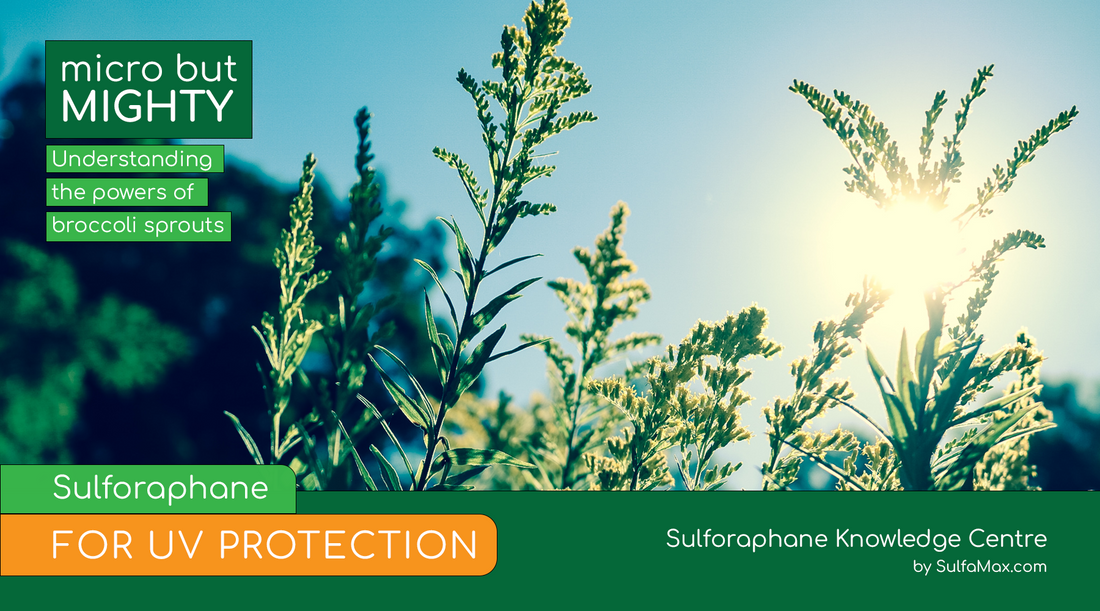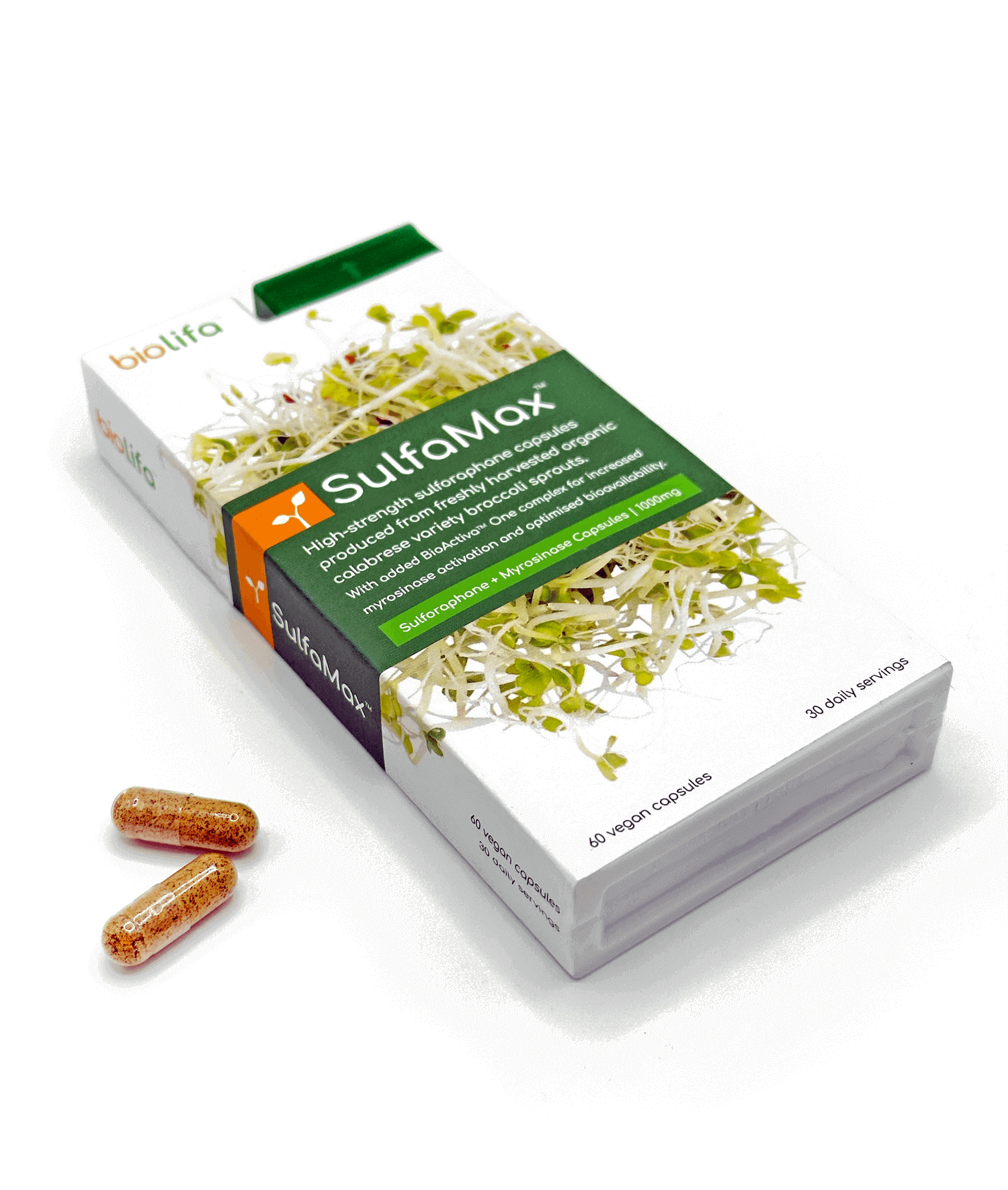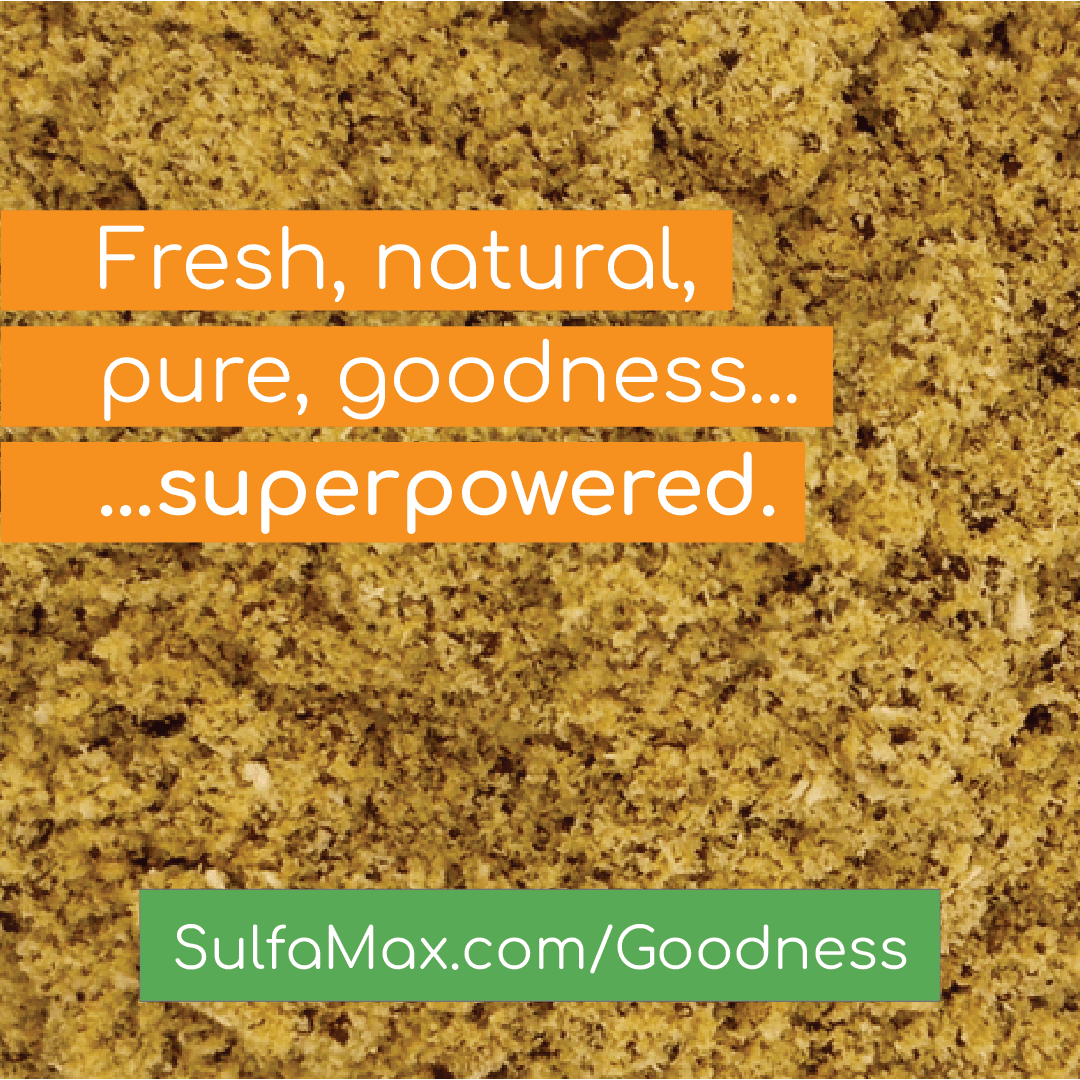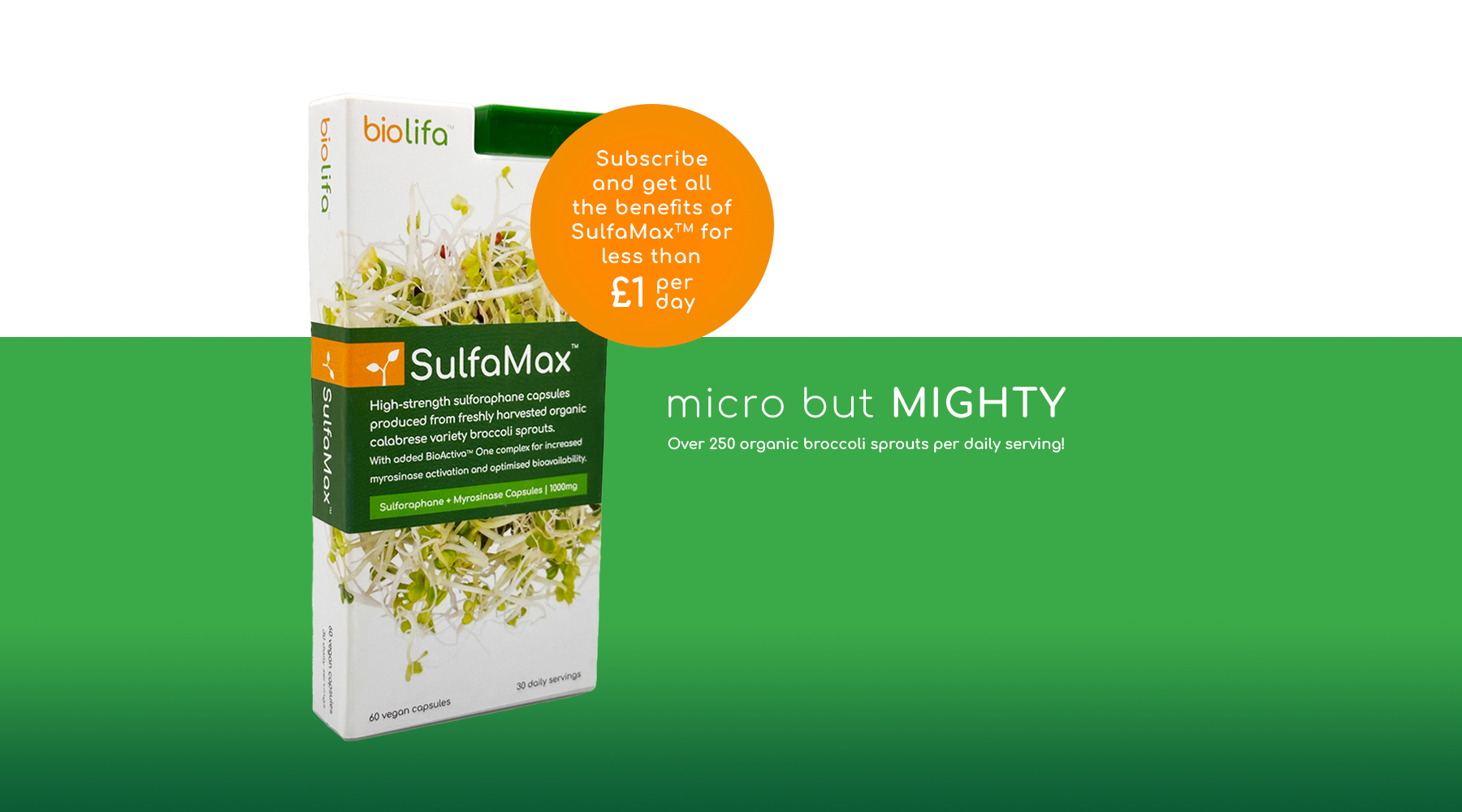While sulforaphane is well known for its anti-inflammatory and detoxifying properties, recent research suggests that sulforaphane may also be beneficial for protecting the skin against the damaging effects of ultraviolet (UV) radiation.
UV radiation is a form of electromagnetic radiation that comes from the sun. While it is necessary for the production of vitamin D and for regulating the sleep-wake cycle, excessive exposure to UV radiation can cause damage to the skin, leading to sunburn, premature aging, and an increased risk of skin cancer.
Fortunately, the body has several natural defence mechanisms to protect against the damaging effects of UV radiation. One of these mechanisms is the production of melanin, a pigment that gives the skin its colour and helps to absorb UV radiation. However, in some cases, the body’s natural defence mechanisms may not be enough to protect against the harmful effects of UV radiation.
This is where sulforaphane comes in. Several studies have suggested that sulforaphane may be beneficial for protecting the skin against UV radiation by enhancing the body’s natural defence mechanisms and reducing inflammation.
One study published in the Journal of Investigative Dermatology found that sulforaphane can help to increase the production of melanin in skin cells, which can help to absorb UV radiation and protect against sunburn. In addition, sulforaphane has been shown to activate a protein called Nrf2, which is involved in the body’s antioxidant defense system.
When activated, Nrf2 can help to reduce inflammation and oxidative stress, both of which can contribute to skin damage and premature aging. In fact, a study published in the Journal of Dermatological Science found that topical application of sulforaphane can reduce the production of reactive oxygen species (ROS), which are known to contribute to skin damage and aging.
Another study published in the journal Photochemistry and Photobiology found that sulforaphane can help to protect against UV radiation-induced DNA damage in skin cells. This is important because DNA damage can lead to mutations that increase the risk of skin cancer.
While more research is needed to fully understand the effects of sulforaphane on UV protection, these findings suggest that sulforaphane may be a promising natural compound for protecting the skin against the damaging effects of UV radiation.
So, how can you incorporate sulforaphane into your skincare routine? While eating a diet rich in cruciferous vegetables is always a good idea, the concentration of sulforaphane in these foods can vary depending on the cooking method and storage conditions. To ensure that you are getting enough sulforaphane to support your skin health, you may want to consider using a topical skincare product that contains sulforaphane.
There are several skincare products on the market that contain sulforaphane, including serums, moisturisers, and sunscreens. These products can be applied directly to the skin and may help to enhance the skin’s natural defence mechanisms against UV radiation.
In addition to using topical skincare products, it’s important to practice other sun protection strategies such as wearing protective clothing, seeking shade during peak sun hours, and applying a broad-spectrum sunscreen with an SPF of 30 or higher.
In conclusion, sulforaphane is a natural compound found in cruciferous vegetables that may be beneficial for protecting the skin against the damaging effects of UV radiation. By enhancing the body’s natural defence mechanisms and reducing inflammation, sulforaphane can help to protect against sunburn, premature aging, and an increased risk of skin cancer. While more research is needed to fully understand the effects of sulforaphane on UV protection, incorporating a sulforaphane-containing skincare product into your routine may be a promising way to support your skin health and protect against UV radiation.
It’s important to note that while sulforaphane may be beneficial for protecting the skin against UV radiation, it should not be used as a substitute for other sun protection strategies. It’s still important to practice safe sun habits, including wearing protective clothing, seeking shade during peak sun hours, and applying a broad-spectrum sunscreen with an SPF of 30 or higher.
In addition, it’s important to speak with a healthcare professional before incorporating sulforaphane into your skincare routine, particularly if you have any underlying health conditions or are taking medications.
Overall, sulforaphane is a promising natural compound that may offer a variety of health benefits, including UV protection for the skin. By incorporating sulforaphane into your skincare routine and practicing other sun protection strategies, you can help to protect your skin against the damaging effects of UV radiation and promote overall skin health.







